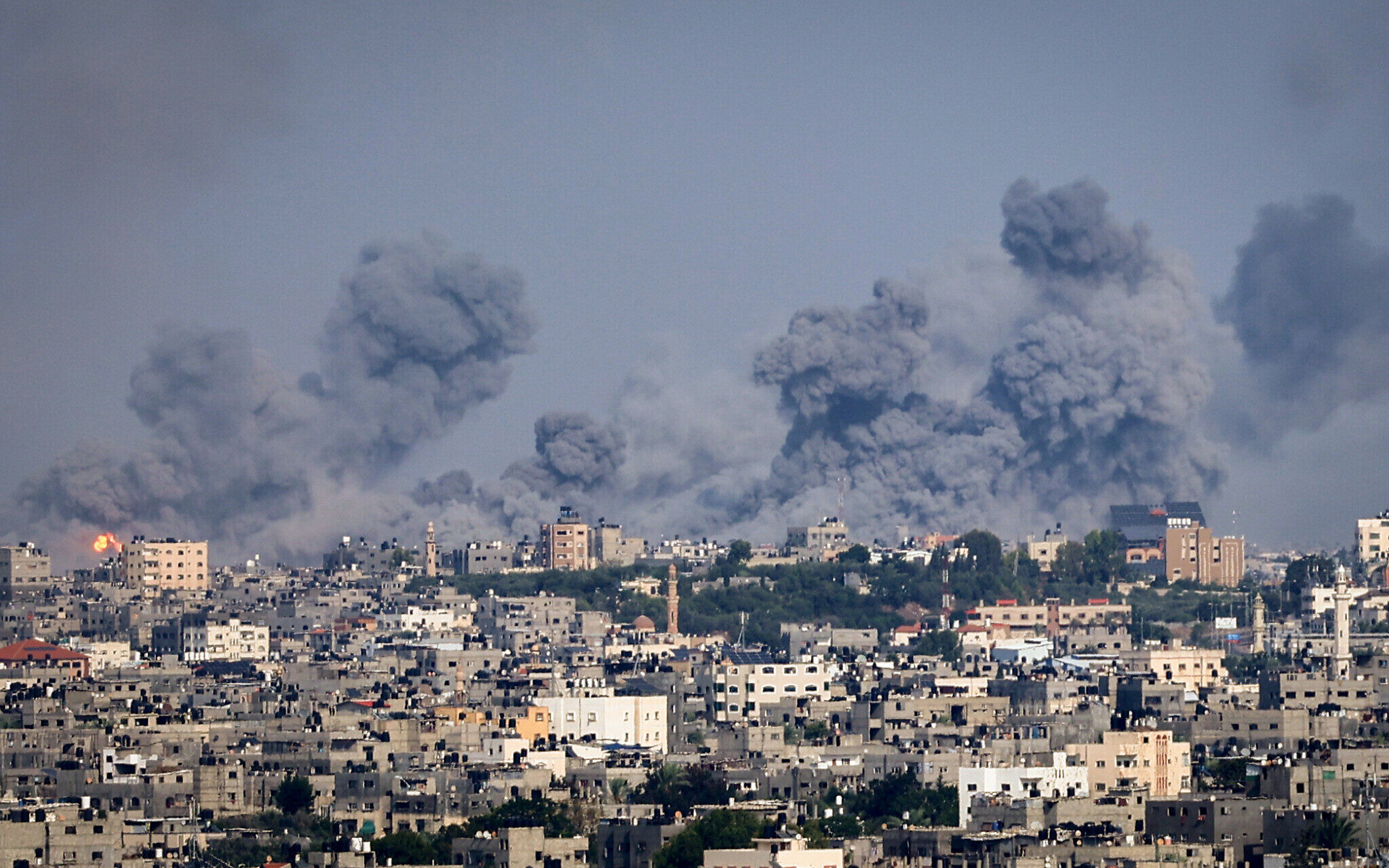Article, Middle East, news, WORLD
Israel Plans to Escalate its Operations in Palestine Despite Humanitarian Concerns

Israeli Prime Minister Benjamin Netanyahu has directed the Israeli military to start a “massive operation” in Rafah, according to a statement issued by the Prime Minister’s Office on Friday.
The instructions are for the Israeli military to develop plans for the evacuation of civilians from Rafah. His order comes as part of a broader strategy to launch what he termed a “massive” military offensive against Hamas, the ruling authority in Gaza.
The directive to both evacuate civilians and intensify military operations in Rafah signals a significant escalation in the Israeli-Palestinian conflict. Netanyahu’s office emphasized the necessity of eliminating Hamas’s presence in Rafah, citing it as crucial to achieving the objectives of the ongoing conflict.
“It is impossible to achieve the goal of the war without eliminating Hamas, and by leaving four Hamas battalions in Rafah. On the contrary, it is clear that intense activity in Rafah requires that civilians evacuate the areas of combat,” the statement added.
Imminent Threats and Humanitarian Concerns
The looming threat of military action in Rafah has triggered widespread concern among humanitarian organizations and the international community. With an estimated 1.5 million Palestinians seeking refuge in Rafah, aid groups warn of an impending humanitarian catastrophe if military operations proceed unchecked.
Reports of Israeli airstrikes targeting Rafah have added to the anxieties gripping the civilian population. Overnight bombings claimed the lives of at least five individuals and left several others wounded, according to reports from local hospitals and eyewitnesses. The airstrikes have intensified fears of an imminent ground incursion, prompting displaced Palestinians to grapple with heightened uncertainty and insecurity.
Netanyahu’s actions in Rafah has drawn sharp rebukes from global leaders and humanitarian agencies alike.
European Union Foreign Policy Chief Josep Borrell condemned the reports of an Israeli military offensive on Rafah, warning of catastrophic consequences that could exacerbate the already dire humanitarian situation in Gaza.
Similarly, UN Secretary-General António Guterres underscored the imperative of protecting civilian lives and averting further displacement in Rafah.
The United States, a key ally of Israel, expressed reservations about endorsing a major military operation in Rafah under current circumstances. National Security Council spokesman John Kirby emphasized that such an offensive would be “a disaster” and emphasized the need to prioritize civilian protection amid escalating hostilities.
If Rafah meets the same fate as battered Gaza City and Khan Younis, “all parts of Gaza will be destroyed — alongside any lifeline of hope and survival for Gazans,” the International Rescue Committee warned this week.
Garda al-Kourd, a mother-of-two who said she had been displaced six times during the war said an offensive against Rafah would mark the end for her and her family.
“If they come to Rafah, it will be the end for us, like we are waiting for death. We have no other place to go,” she told the BBC from a relative’s house in the city where she was living with 20 other people.
Biden’s Critiques and Legislative Response
President Joe Biden’s condemnation of Israel’s military conduct in Gaza added to the international chorus of criticism. Biden characterized the situation as “over the top” and underscored the urgent need to halt the loss of innocent lives in the conflict.
In response to mounting concerns, President Biden issued a memorandum outlining stringent standards for countries receiving U.S. weapons, including Israel. The memorandum, which mandates an annual report to Congress on compliance with these standards, reflects growing scrutiny of Israel’s military operations and their humanitarian implications.
The U.S. Senate approved a military aid bill that includes $14 billion for Israel bundled with funding for Ukraine. Despite bipartisan support for Israel in the U.S. Senate, the prospect of increased military aid faces challenges in the House of Representatives. Speaker Mike Johnson has signaled potential obstacles to the passage of a military aid bill, citing concerns over additional funding for Ukraine.
Still, Washington has continued its military and diplomatic support for Israel’s campaign despite Israel shrugging off its previous calls to reduce civilian casualties.
It’s unclear where civilians would evacuate if the military operation happens in Rafah. Rafah lies trapped between Egypt to the south, the Mediterranean Sea to the west, Israel to its east and Israeli troops to its north. Earlier in the war, Israel declared a rural area in Rafah to be a safe zone. But in recent weeks it has bombarded the zone and sent troops to seize parts of it.
At least 27,947 people have been killed and 67,459 injured in the Gaza Strip since the war began, according to the Gaza Health Ministry. Israel estimates that about 1,200 people were killed in Hamas’s Oct. 7 attack.
U.N. officials say 90% of Gaza’s population is eating less than one meal a day, and a quarter of the population faces outright famine.

